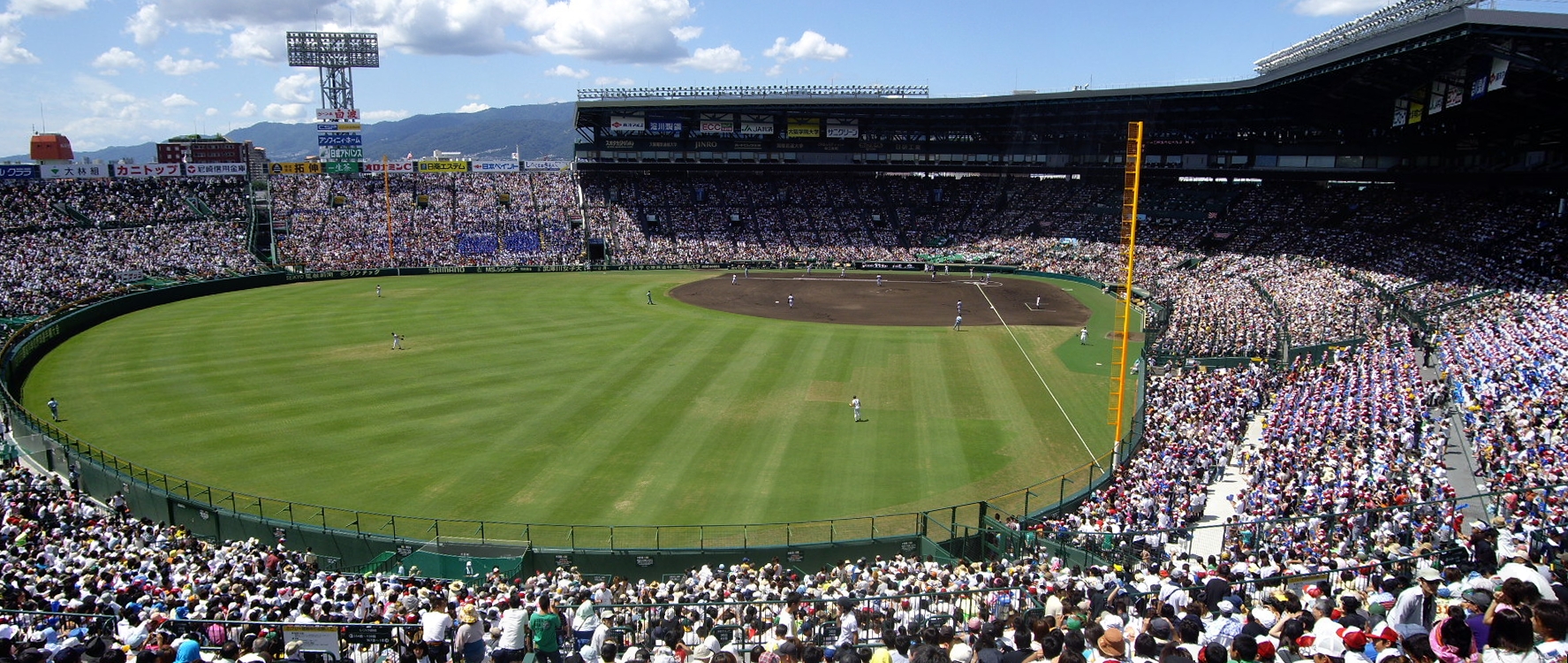Amassing millions of views per game, the biggest summer tournament in Japan has garnered a cult following throughout the country.
Over 50,000 individuals arrive at the Hanshin Koshien Stadium to witness a once-in-a-lifetime opportunity for the players. As the lights shine onto the two remaining teams, 34 teen boys prepare to play what many consider the most important baseball game of their lives.
Overshadowed by the importance of the event, however, lies decades of player abuse behind the tournament.
Originally named the National High School Baseball Championship, the Summer Koshien began in 1915 and was played in multiple ballparks, often utilizing the Toyonaka and Naruo stadiums. The National High School Baseball Championship would relocate to a permanent stadium to accommodate the newfound praise and interest in the tournament. In 1924, they began co-occupying the Hanshin Koshien Stadium with the Hanshin Tigers, undergoing a name change to the Summer Koshien.
Within the Koshien’s two weeks, the Tigers relocated for the tournament.
The Summer Koshein has featured 49 teams since its inception, including seven extra teams on special years (80th, 90th, and 100th tournaments). Teams are selected by winning their respective regional tournament, requiring devotion to the sport throughout the season. Once selected, the teams will attend the Opening Ceremony and march to the stadium from the outfield. Any lost games result in immediate disqualification, with tiebreakers implemented if necessary.
Millions of young Japanese baseball players dream of winning the Koshien, but what do they earn?
Winners of the Summer Koshien don’t receive prizes. There’s no trophy or money prize, only publicity and bragging rights.
Even though winning teams aren’t guaranteed any prize, several players achieved successful careers in baseball after the Koshien. Scouts attend games like the Koshien in an attempt to find the newest star, often emphasizing signing players straight out of high school instead of college. Koshien heroes like Daisuke Matsuzaka and Hideki Matsui were highly sought after and eventually signed after high school graduation. Other legends who played within the Summer Koshien and went on to play in the MLB include Shohei Ohtani, Yoshinobu Yamamoto, and Yu Darvish.
Japanese high school baseball coaches control all aspects of a player’s life. Their biggest decisions include the player’s diet, relationships, friendships, schedules, and all else within their power. Though more common in NPB, many teams even have dormitories where players must stay for eleven months per year, with an extra week added if the team wins championships. In these arrangements, they’re provided with certain foods and other necessities.
With a history of undergoing aggressive practice styles, many players work until their final breath – literally. Multiple children have reportedly died from harsh practices or punishments following errors during a game. Some coaches asked that players eat large meals before practice to make them train until they vomited, and others would physically abuse the children for any error.
The most common maltreatment of children, however, was hazing. This ranged anywhere from humiliation to endangering the player’s physical well-being. Teams even denied players water during practices in the summer and caused pitchers permanent damage to their bodies.
Players are frequently subject to practice for over four hours, which is illegal in the United States under CIF Bylaw 506. With verbal, physical and mental abuse sprinkled throughout these Japanese practices, many Americans are left to wonder why legal action has not been taken against these coaches. Contrary to popular assumption, many parents in the past were aware of this treatment and fully supported it. Players in the past even expressed gratitude towards this treatment. Throughout the years, however, sentiments towards this coaching style have changed. More coaches are now being punished for this harsh treatment, and parents are advocating for their children.
The most publicized abuse of players visibly occurs within the Summer Koshien. With teams giving their everything for a shot at the finals, many surpass the usual nine innings. The Koshien holds a rule regarding tiebreakers, stating that if a match goes over 15 innings, they must finish it and restart the game the following day. The average MLB pitcher is 25 years old and throws 90 to 120 pitches a game, compared to numerous Koshien pitchers who hold records in the hundreds. Some headlining pitchers include Daisuke Matsuzaka, who threw 881 pitches throughout the Koshien (specifically 250 pitches in a 17-inning complete game semifinal), Yu Darvish, who threw 505 pitches, and Masahiro Tanaka, who threw 658 pitches.
It’s important to mention that this abuse is not exercised on all teams and players. Being invited to play at the Summer Koshien is an incredible honor for participants and many train as much as possible to give their best throughout the tournament. Still, conditions are constantly improving and many coaches genuinely care for their players. Besides acknowledging this abuse, it’s significant that we advocate against this and speak up for children in these situations. As the fame surrounding the Summer Koshien continuously increases as it has thus far, we must acknowledge what we are supporting and who it is affecting.


